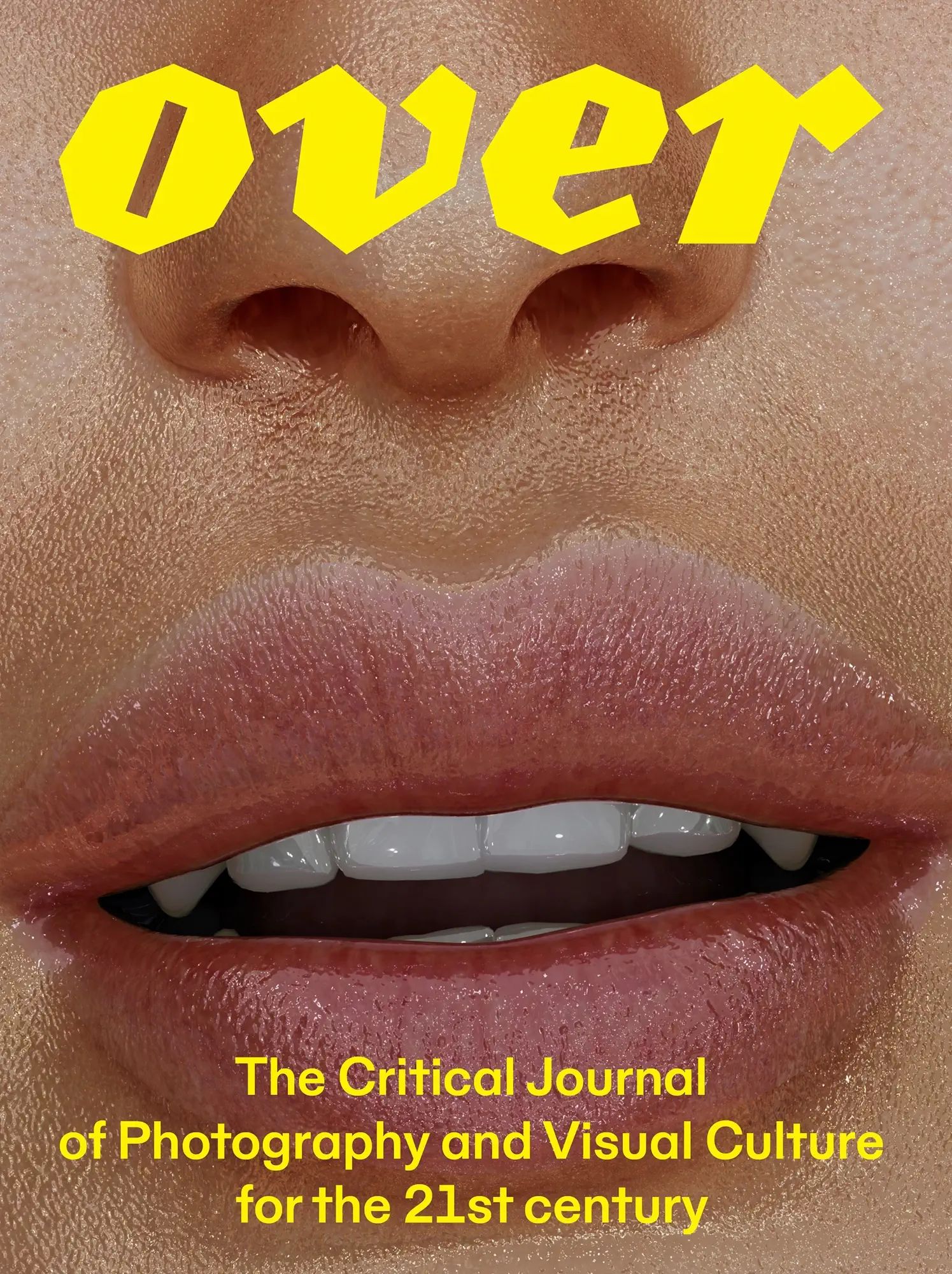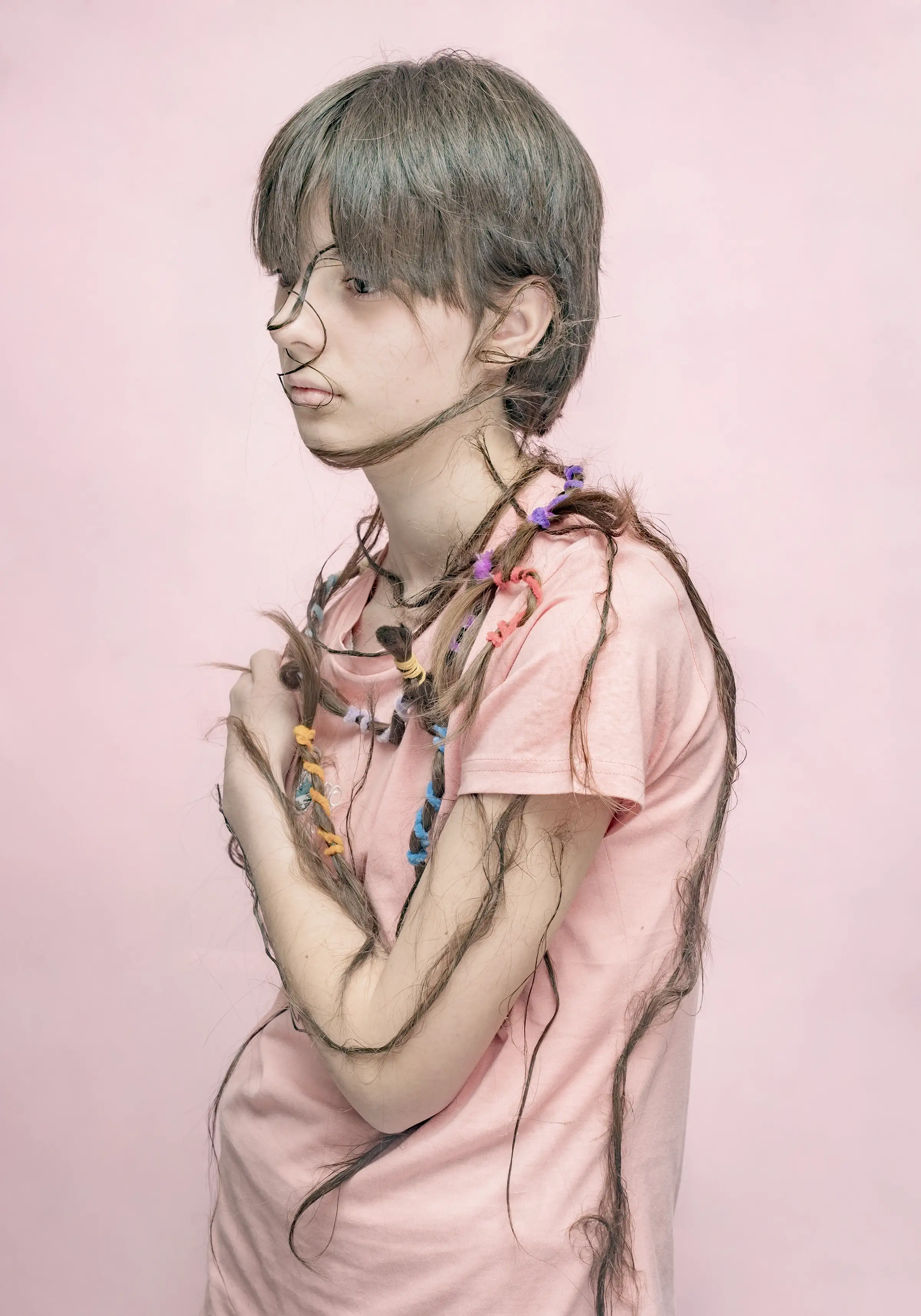Reclaiming Childhood: The Intimate World of Michalina Kacperak’s Soft Spot
Polish visual artist Michalina Kacperak constructs work that is as emotionally raw as it is delicately rendered. In her acclaimed project Soft Spot, she applies photography and video to navigate the quiet strength of childhood imagination in the context of a challenging home environment. By merging the documentary with the symbolic, her visual language — rooted in metaphor, play, and vibrant, at times humorous, aesthetics — supports a cathartic reflection on family traumas while offering a new scope on recovery through art.
A Project That Belongs to Many
Set largely in the room of Michalina’s youngest sister, Zosia, Soft Spot captures a child’s world shaped by both joy and fragility. Their family’s history—marked by a father’s struggle with alcoholism and long periods of emotional absence from both parents—casts a shadow over the narrative. Yet, Kacperak finds tenderness and vitality in these familiar spaces.
The photographs that make up Soft Spot move between documentation and carefully arranged tableaus. Worn furniture, drawings on the walls, used toys—all become carriers of the complexities of emotional inheritance. Through Zosia’s room, the artist builds a metaphorical landscape of childhood: both as a safe haven and as a site of tension. The visual setting operates not only as a literal “home base” but also as a staging ground for re-enactments, coping with the complexity of feelings, and ultimately, healing.
“There are no grown-ups in our family. The ones who grew up remained children. Soft Spot is my personal story, but it could also belong to many others.”
— Michalina Kacperak
Born in a small town in southern Poland, Michalina is the eldest of four sisters. Zosia, the youngest, was born when Michalina was sixteen. Zosia’s courage, imagination, and unapologetic self-expression became the seed of the project. The artist recalls being unable to pinpoint when she herself lost those same qualities—only that she was already without them by the time she was Zosia’s age.
As the project evolved, the involvement of other family members became increasingly significant. Initially hesitant, the artist’s parents and other sisters gradually stepped into the frame. Her mother, once a silent presence in the background of their lives, eventually agreed to be photographed. These quiet acts of participation, small but brave, reveal the gradual process of reconciliation that underpins the work.
Soft Spot — Notes from the process
Parallel to the photo series, Kacperak made an accompanying video entitled Soft Spot. Notes from the process. Instead of constructing a polished studio setup, Kacperak embraced unpredictable, sometimes absurd or uncomfortable situations within the domestic space, allowing images to emerge from this disorder. The video captures laughter, tension, improvisation, and vulnerability—a behind-the-scenes diary of the family navigating the unfamiliar terrain of collaborative art-making.
Rather than simply documenting the end result, the video reveals the creative dynamics at play: spontaneous, chaotic and highly relational. Over time, the project became something shared. Zosia remained the central figure, but her sisters Zuzia and Joanna also became integral to the process. Zuzia, often behind the camera, supported her sister as an inventive assistant and emotional anchor. Joanna, mostly operating in the background and not so much seen in the video, supported the artist during the most difficult, but also most meaningful phases of her life. The parents, too, became more involved—their presence, in subtle ways, suggesting gestures of healing.
Soft Spot. Notes from the process is a window into that transformation. While it offers no easy closure, it acknowledges a quiet courage: to participate, to be present, and to face the silences that have long defined their home.
Art as a Space for Repair
Soft Spot began as a deeply personal journey of discovery, but quickly took on a universal meaning. Through her layered and emotionally articulate practice, Michalina Kacperak invites viewers into spaces where personal and collective wounds quietly coexist. In essence, her work asks: What does it mean to return to the places that hurt us? To find, within them, the possibility of tenderness?
Kacperak’s approach reflects a broader interest in the therapeutic and relational potential of art. Her collaborative exhibition Auć, co-created with artist Karolina Balcer and awarded the Special Prize by the ING Polish Art Foundation during Warsaw Gallery Weekend 2024, similarly explores family trauma using non-literal, playful visual strategies. Together, they came to an artform of collaboration and their mixed media speak to a shared belief: that psychological ache, when processed creatively and by exploring a space and form for it, can eventually lead to a new form of connecting—both with others and with oneself.
Read more about 'Soft Spot' in the feature presented in OVER Journal issue 3.
Images copyright by Michalina Kacperak
More details about her work at michalinakacperak.com
Michalina Kacperak is represented by Jednostka Gallery in Warsaw. See jednostka.com






















